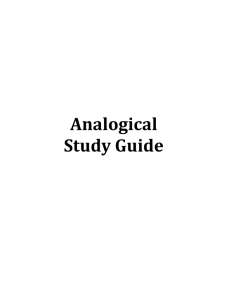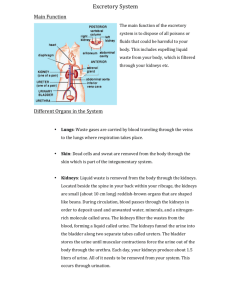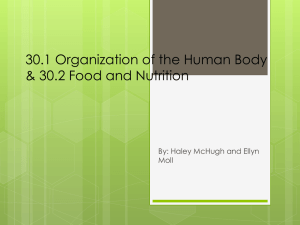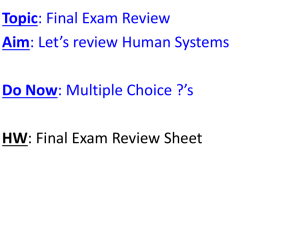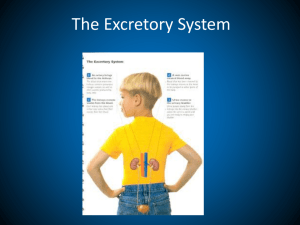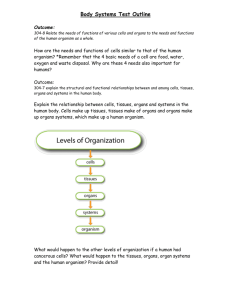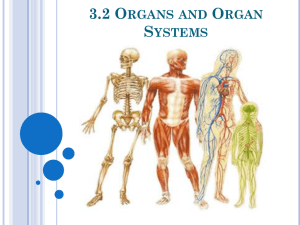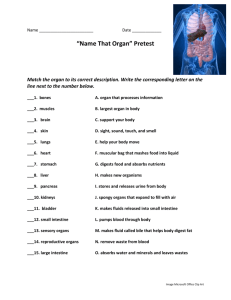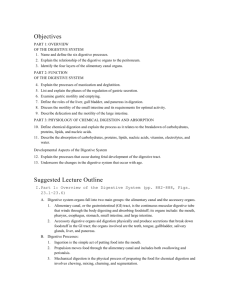Review Sheet - Fort Bend ISD / Homepage
advertisement
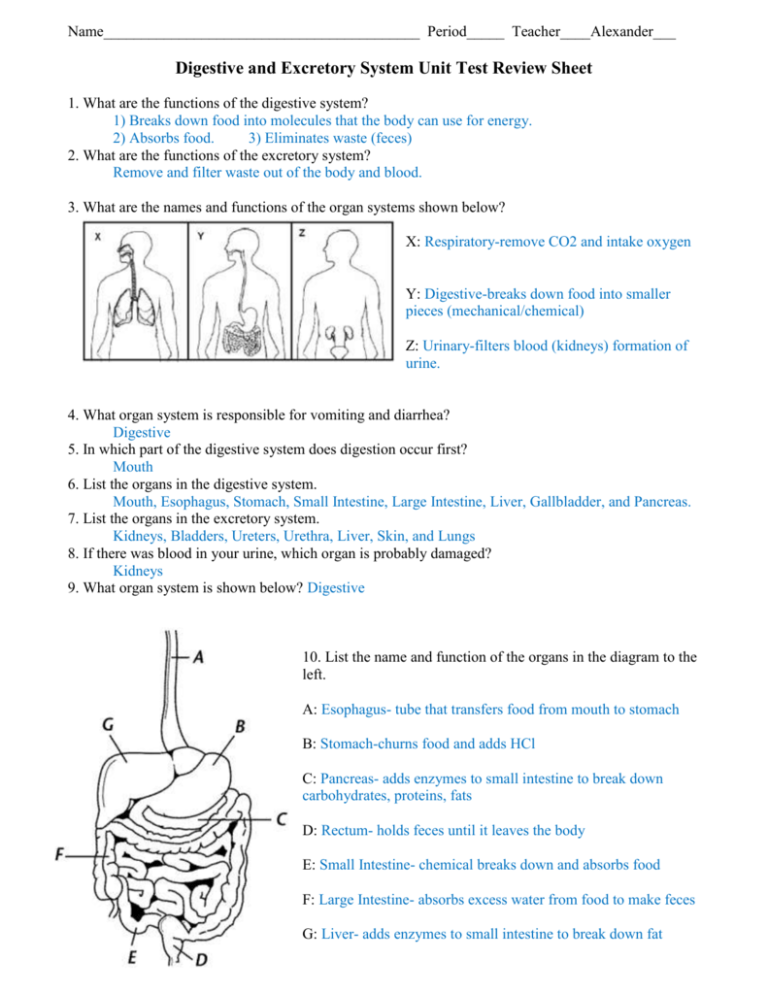
Name__________________________________________ Period_____ Teacher____Alexander___ Digestive and Excretory System Unit Test Review Sheet 1. What are the functions of the digestive system? 1) Breaks down food into molecules that the body can use for energy. 2) Absorbs food. 3) Eliminates waste (feces) 2. What are the functions of the excretory system? Remove and filter waste out of the body and blood. 3. What are the names and functions of the organ systems shown below? X: Respiratory-remove CO2 and intake oxygen Y: Digestive-breaks down food into smaller pieces (mechanical/chemical) Z: Urinary-filters blood (kidneys) formation of urine. 4. What organ system is responsible for vomiting and diarrhea? Digestive 5. In which part of the digestive system does digestion occur first? Mouth 6. List the organs in the digestive system. Mouth, Esophagus, Stomach, Small Intestine, Large Intestine, Liver, Gallbladder, and Pancreas. 7. List the organs in the excretory system. Kidneys, Bladders, Ureters, Urethra, Liver, Skin, and Lungs 8. If there was blood in your urine, which organ is probably damaged? Kidneys 9. What organ system is shown below? Digestive 10. List the name and function of the organs in the diagram to the left. A: Esophagus- tube that transfers food from mouth to stomach B: Stomach-churns food and adds HCl C: Pancreas- adds enzymes to small intestine to break down carbohydrates, proteins, fats D: Rectum- holds feces until it leaves the body E: Small Intestine- chemical breaks down and absorbs food F: Large Intestine- absorbs excess water from food to make feces G: Liver- adds enzymes to small intestine to break down fat 11. What is the difference between mechanical and chemical digestion? Mechanical- breaking down food into smaller pieces (physical change) Chemical- enzymes break down food into pieces small enough to be absorbed into blood. 12. Which nutrients/foods are made up of amino acids? Proteins 13. Describe what happens to food as it goes through each organ of the digestive system. 1) Food chewed in the mouth 3) Food churned in stomach 5) Excess H2O absorbed by large intestine 2) Food pushed through esophagus 4) Nutrients absorbed in the small intestine 14. During chemical digestion carbohydrates are broken down into ____sugars______ such as glucose. 15. Once a meal is digested, which organ system will transport the nutrients to all of the cells in the body? Circulatory 16. What is the name of the organ system shown in the diagram below? urinary 17. List the name and function of the organs in the diagram to the left. A: Kidneys-filters the blood and produces urine B: Ureters-transfers urine to bladder C: Bladder- hold urine until it leaves the body D: Urethra- tube that removes urine from body 18. Urine is mostly made up of ___Water____. 19. Where does the urea in urine come from? Digested protein 20. Which excretory organ eliminates water and some chemical wastes in perspiration (sweat)? Skin 21. If doctors wanted to test a person to see if there were illegal drugs in their blood, which substance would they most likely use? Urine 22. How do the excretory and respiratory systems interact? The lungs remove carbon dioxide from the body. 23. How does the circulatory system and excretory system work together in your body? The circulatory system transports food and oxygen to the kidneys, then the kidneys filter harmful waste products from out of the blood.
